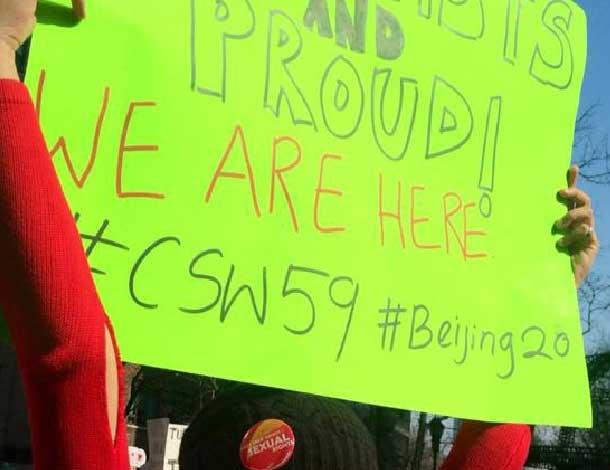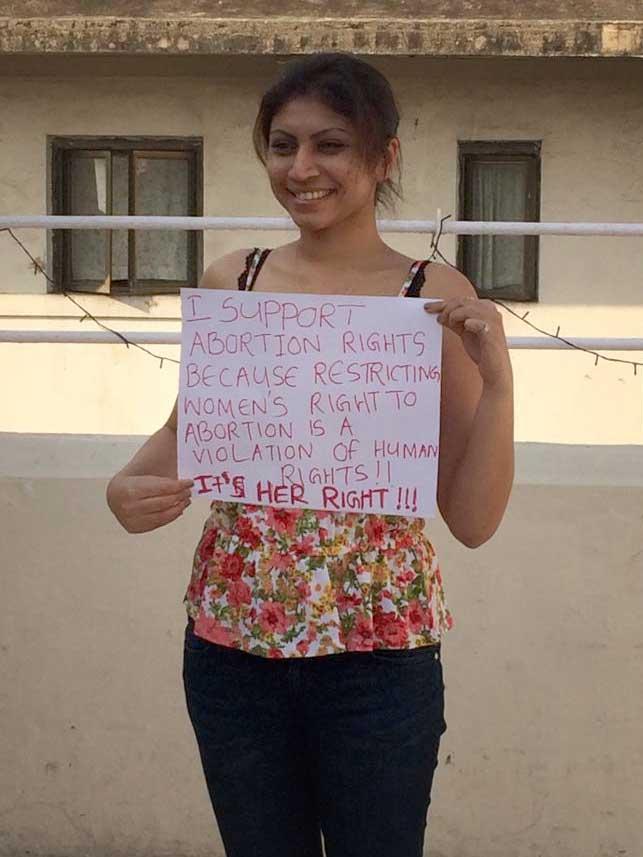The post-2015 mechanism in development is expected to ensure gender equality and ‘leave no one behind.’ However, gender mainstreaming or even the MDGs and ICPD15 platforms have still failed to address gender inequality in a nuanced manner. One main reason for this is that the gender focus tends to look, not at gender relations or prevailing assumptions about sexuality, masculinity and femininity, but specifically at women, and women as different from men, leaving out people across the gender spectrum, specifically transgender folks.

It is a lived reality that young people in many countries do not receive comprehensive sexuality education (CSE) with proper teacher and parent training and sensitization. This has adverse effects on health both during the adolescent years and also in later life. Lack of youth friendly health services and lack of knowledge of human rights and laws related to protecting rights fuel the gravity of the situation, creating a huge unmet need for information and services.
Therefore it is urgent that young people themselves become agents of change and make these demands from their governments. They must be supported, recognized, and provided with safe spaces for advocacy and activism which allows them to meaningfully engage in discourses on rights, development and justice. For this purpose, young people need sustained capacity building, mentoring and opportunities to represent their cause at relevant forums such as the post 2015 platform without being tokens. It’s not only the responsibility of young people to be keen to participate in these dialogues and movements but also the responsibility of the international community, the UN, governments, civil societies, corporate sector and activists to equip and support them.

I initiated and conducted the first ever Beijing+20 youth review in Sri Lanka focusing on gender equality and SRHR of young people. The outcome statement was presented to several high-level decision makers and also at platforms like the CSW59. This process on Beijing Program of Action and post 2015 advocacy work made me realize that if young people are allowed to fully participate, by representing local and national issues specially related to taboo subjects like sexuality and sexual and reproductive health and rights, voicing our opinions and needs in order to take issues forward, the whole process would have been very impactful. I believe that young people need to take the leadership in post 2015 and SDG platforms to create country level dialogues and platforms with local and national inputs for the implementation of the SDGs in their countries. Unfortunately, young people were left out of the process that led to the formulation of development goals and platforms, and implementation until recently. This is why young people have to take charge now and ensure that these agreements, targets, and commitments go from words on a piece of paper, to policy, to reality, to holding our governments accountable.
Here is a video which captures some of the young feminists asks following the Beijing+20 review in Sri Lanka.
Sarah Soysa is a 27-year-old feminist activist from Sri Lanka. She has completed her masters in Gender and development studies from The University of Melbourne and is a steering committee member of Asia Safe Abortion Partnership. She is also an advisor for FRIDA The young Feminist Fund and is a teaching assistant at the University of Melbourne. She currently works as the global coordinator of the Commonwealth Youth Gender and Equality network.
2224x1253.jpg)